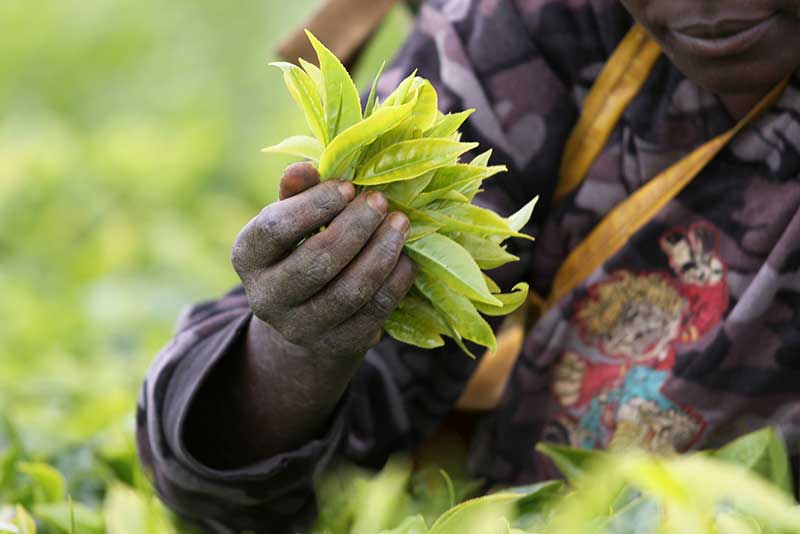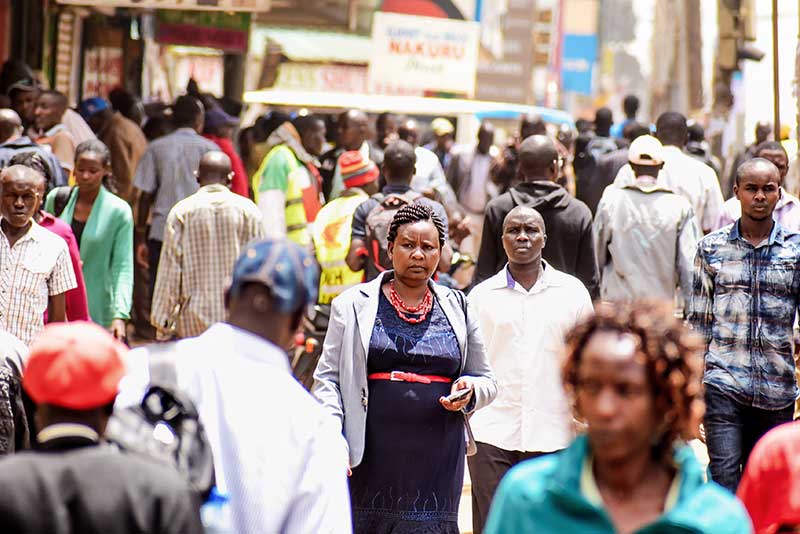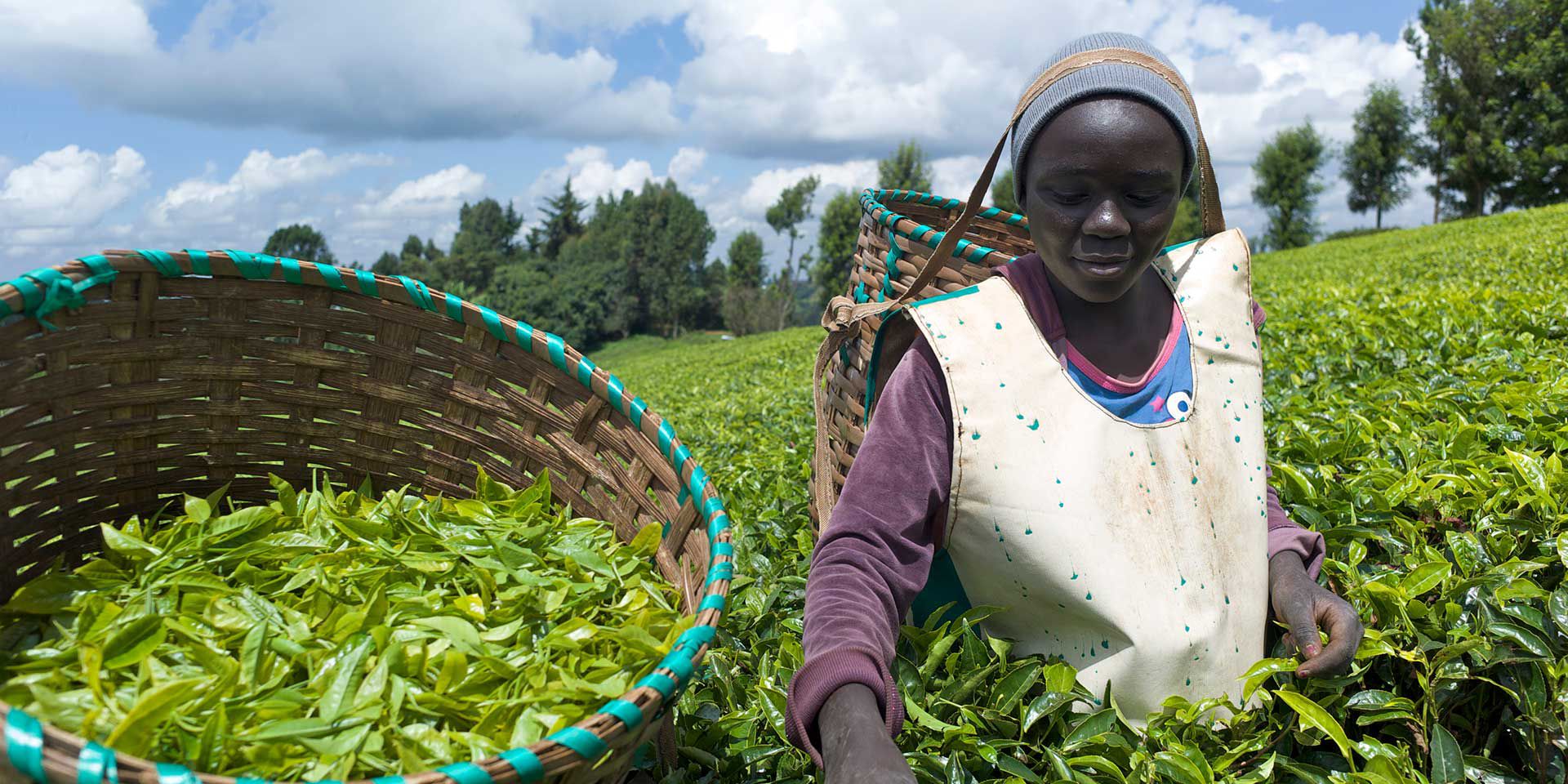By Alison Buckholtz
When Grace Kibuthu Ogola thinks back to her childhood in Kericho, part of Kenya’s Rift Valley, she remembers the rolling green hills first. The landscape is renowned for its fertile ground—ideal for growing tea, which is one of the region’s main agricultural crops and an important export.
But for many smallholder farmers in the Rift Valley, access to finance is limited, and buying technology and land to expand operations is an ever-present challenge. A healthy local capital market, Kibuthu Ogola believes, could jump-start the kinds of changes that would allow those small businesses to shift “from subsistence to sophistication.”
“Farmers and small business owners need mud roads replaced with paved roads, to make access in and out of the properties easier, or airports built closer to transport exports quickly, since delays cause damage to fresh produce,” said Kibuthu Ogola, a financial sector specialist at IFC whose work includes developing capital markets in Africa. “If your industry cannot access funding in an environment where there is a high cost of doing business, you are not going to be competitive.”
For the many African countries seeking to attract much more investment, the issue of strengthening capital markets is critically important. Trends and challenges around building these markets will be front and center at the J-CAP 2020: Investing for Growth conference, taking place today and Tuesday in Abidjan, Cote d’Ivoire.
The forum, sponsored by the World Bank Group’s Joint Capital Markets Program, or J-CAP, features many private and public sector leaders. One topic of discussion will be the capital markets of the West African Economic and Monetary Union (WAEMU), where J-CAP is supporting reforms to strengthen investor protections, modernize the legal and regulatory framework for public offerings, and introduce new instruments to crowd-in new issuers. The union is comprised of Benin, Burkina Faso, Côte d’Ivoire, Guinea-Bissau, Mali, Niger, Senegal, and Togo.
The stakes are high. Local capital markets can protect economies from volatility—an essential outcome in the context of the continent’s fast-rising rates of urbanization, response to climate change, and urgent need for jobs.

Strengthening capital markets can have a positive impact on the lives of many people in developing countries.
© Kenya Tea
J-CAP’s “Ecosystem Approach” to Deepening Capital Markets
Especially in Africa, where one in five countries does not raise enough revenue to meet its basic needs, domestic capital markets represent a significant opportunity to reduce development gaps.
The program brings together World Bank and IFC teams that help countries set up demonstration transactions and then build on what works in line with the country’s specific context. The work contributes, for example, to strengthen protections for investors, modernize regulatory frameworks, and introduce new financial instruments that can help businesses protect themselves from foreign exchange volatility, says IFC Vice President and Treasurer John Gandolfo.
“J-CAP supports the development of capital market conditions required to harness the $120 trillion held by institutional investors worldwide—to fund essential infrastructure, climate change mitigation, and commercial needs of emerging economies such as those in WAEMU,” Gandolfo says.
In addition to WAEMU, J-CAP currently operates in Bangladesh, Indonesia, Kenya, Morocco, Peru, and Vietnam.
The program is supported by Australia, Germany, Japan, Luxembourg, Norway, and Switzerland.
Creating a Framework
For Paul Muthaura, who recently stepped down as Chief Executive Officer of Kenya’s Capital Market Authority, the foundation of any sound capital market is built on government support. What allowed Kenya’s market to succeed, he said, was directly related to the growing commitment from local officials. He said emerging economies considering a local capital market require “very strong ownership and leadership of any market reform process from the highest levels of government—and particularly within the Ministry of Finance.”
Muthaura believes that East African markets have made significant strides in coordination of standards—another high-priority issue for any regional market. This paves the way “for the emergence of East Africa as an asset class through allowing issuers and investors to freely operate across all member states unlocking ‘scale’ markets,” he said.

Commitment from local officials was crucial for
Kenya’s capital market to succeed. © Billy Miaron/Shutterstock
Strengthening Real Estate Markets and SME Financing
Real estate markets support urban economic growth, create jobs, and provide social safety. In Africa, as in other J-CAP focus areas, citizens need access to finance that will allow them to purchase affordable housing. This is an issue that Kibuthu Ogola closely follows because of the significant housing gap in Kenya. “The challenge with our main mortgage market is that access to housing finance is limited and typically short-term, typically as a series of five-year loans. We need solutions that mobilize long term funding to develop affordable housing,” she said.
A sturdy capital market can also spur more innovation by extending support to small and medium-sized enterprises (SMEs). “We need to be more creative about how we support SMEs, so moving forward alternative investment vehicles will be significant in the future,” she said.
Real estate and SME financing are important because “you’re not just talking about houses, farms, companies, or banks, but you’re talking about people able to access funds,” Kibuthu Ogola said. “Our markets in Africa need to grow to a level where they can serve the needs of the people. That is what will translate into economic growth.”

A sturdy capital market can spur more innovation by extending support to small enterprises. © Sopotinicki/Shutterstock
Attracting Foreign and Long-term Local Investors
The critical question when strengthening capital markets is how to attract foreign as well as long-term local investors. Demonstrating readiness for investors is the culmination of years of planning and effort. What does an investor look for? The importance of internal structural reform is “at the core for emerging markets,” said Catherine Bouvier d’Yvoire, the Managing Director of Public Sector & Development Organisations at Standard Chartered Bank.
The elements also must be developed in the correct order—what experts refer to as “sequencing”—for a capital market to appeal to an investor. For example, it’s necessary to have a liquid government bond market before creating a long-tenure corporate bond market, according to a 2017 McKinsey study on deepening local capital markets in emerging economies.
As d’Yvoire eyes capital market development in emerging economies, she looks for signs that typically signal progress to investors, such as secondary offerings. Investors also need to see transparency, a range of players, and “cornerstone institutions”—such as a stock exchange, clearing corporation, depository, or credit rating agencies, which can set standards and promote structural reforms, she said.
“It’s much more difficult for countries to fix their structural impediments internally than it is to leapfrog and rush to international capital markets,” said d’Yvoire. “It’s much easier to do a roadshow than it is to do all the tedious and difficult reforms internally to have your capital markets domestically working.”
Published in February 2020
